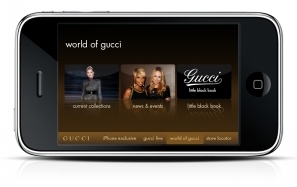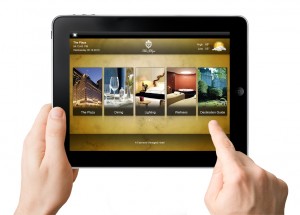Use of mobile devices surge market success of luxury brands.
 The Luxury Institute conducts independent research with wealthy consumers about their behaviors and attitudes on customer experience best practices. Their white papers on luxury trends and consumer attitude change emerge consistently throughout the year.
The Luxury Institute conducts independent research with wealthy consumers about their behaviors and attitudes on customer experience best practices. Their white papers on luxury trends and consumer attitude change emerge consistently throughout the year.
The Institute states, ” As the luxury industry enters the last quarter of 2010 and prepares for 2011, executives are grateful for what could have been a worse year considering the state of the world’s economy. The truly global top-tier luxury brands are surging in China, while holding their own in the US, Japan, and Europe. Leading public companies have done much better than privately-owned brands by using their heritage, innovation, and resources to gain market share. Many family-owned European brands, rich with history but lacking innovation, have suffered and are desperately looking for capital. Overall, the industry has seen tepid growth; this trend is likely to continue for the next three years unless some unforeseen, and highly unlikely, positive event occurs and saves the global economy.”
Here are some of their findings on current and emerging luxury trends for 2011:
1. Brand and Service Values
According to the Luxury Institute, luxury firms need to forge a unique identity which should be based on more than “the name, personality and style of the founder”. There should also be a set of values associated with each brand. Studies show that the brands which have promoted a rich luxury culture have enjoyed the biggest financial rewards.
2. No More Toxic, Arrogant Staffs
People still associate fashion and luxury experts with arrogant, patronizing and sometimes even narcissistic attitudes. But the new trend is to hire only those experts who can be genial and client-centered. It becomes more and more obvious that a pleasant attitude towards clients brings more money by increasing sales and determining loyalty.
3. Better Internet and Telephone Communication
One senior luxury executive recently told the Luxury Institute that “It’s a dark day for luxury when Zappos delivers a far better luxury experience than any luxury brand”. As luxury retailers learn to leverage the Internet for e-commerce, they are also learning that one thing affluent consumers expect from their online experience, if the need arises, is the availability and opportunity for quick, easy and immediate direct communication. In a recent Luxury Institute WealthSurvey, 62% of affluent consumers stated that when shopping online they feel more comfortable if they can call someone directly for assistance, and 60% said they are likely to abandon their online purchase if they cannot find quick answers to their questions on the website. In addition, 45% expect an obvious phone number to speak with a live sales or customer service representative. While luxury struggles with the answer, Zappos has beat them to it and gained the high ground. The secret that Zappos has learned is that only a small percentage of people need this call service very often. Look for most luxury brands to understand the connection between the call center and online channels and create a far better experience for customers in 2011.
4. Clienteling Becomes a Must.
Only 25% of affluent consumers reported that they have a relationship with a sales associate at a luxury brand. When clients have the possibility of establishing a personal relationship with a sales professional, the sales numbers magically get higher. Surveys show that too few luxury brands emphasize the importance of socialization in their sales departments. Why is this important to change? Because this small group of luxury consumers give a retailer almost twice as much in wallet share. They also are likely to continue buying more over time if they have a relationship with a dedicated sales professional.
5. Luxury Mobile Applications
 Small devices such as mobile phones have become a very important part of our lives and even of the way we do our shopping. People purchase products, compare prices and even search for information about the products in front of them on the shelves – all via mobile devices.
Small devices such as mobile phones have become a very important part of our lives and even of the way we do our shopping. People purchase products, compare prices and even search for information about the products in front of them on the shelves – all via mobile devices.
Top luxury brands now well into a few years of e-commerce, and having finally ventured into social media, are determined not to miss the soon-to-explode mobile device shopping party. Luxury Institute research on the wealthy consumer use of mobile devices shows that 76% compare prices via mobile devices, while a rapidly growing 27% have purchased via a mobile device. In addition, 21% report that they use mobile devices to look up respective product information while shopping in stores. We are near a tipping point where mobile devices will replace the laptop for many activities and transactions and luxury brands are racing to be a step ahead for a change.
6. In Store Mobile Devices for Sales Professionals
 Luxury is about to begin testing equipping its sales professionals with mobile devices such as iPadsand iPhones in its stores. They can be used to take customers through rich sales presentations that include video and audio enhancers. They can even alert the sales professionals when a customer enters the store and quickly and smoothly check you out without waiting in a register line. Even the travel and hotel industries are using these mobile devices to take a potential guest on a Virtual Tour of their destination.
Luxury is about to begin testing equipping its sales professionals with mobile devices such as iPadsand iPhones in its stores. They can be used to take customers through rich sales presentations that include video and audio enhancers. They can even alert the sales professionals when a customer enters the store and quickly and smoothly check you out without waiting in a register line. Even the travel and hotel industries are using these mobile devices to take a potential guest on a Virtual Tour of their destination.
In 2011, mobile devices will improve on combining personalization efficiency and effectiveness with an unprecedented touch of caring and nurturing that are the Holy Grail of a true luxury experience.